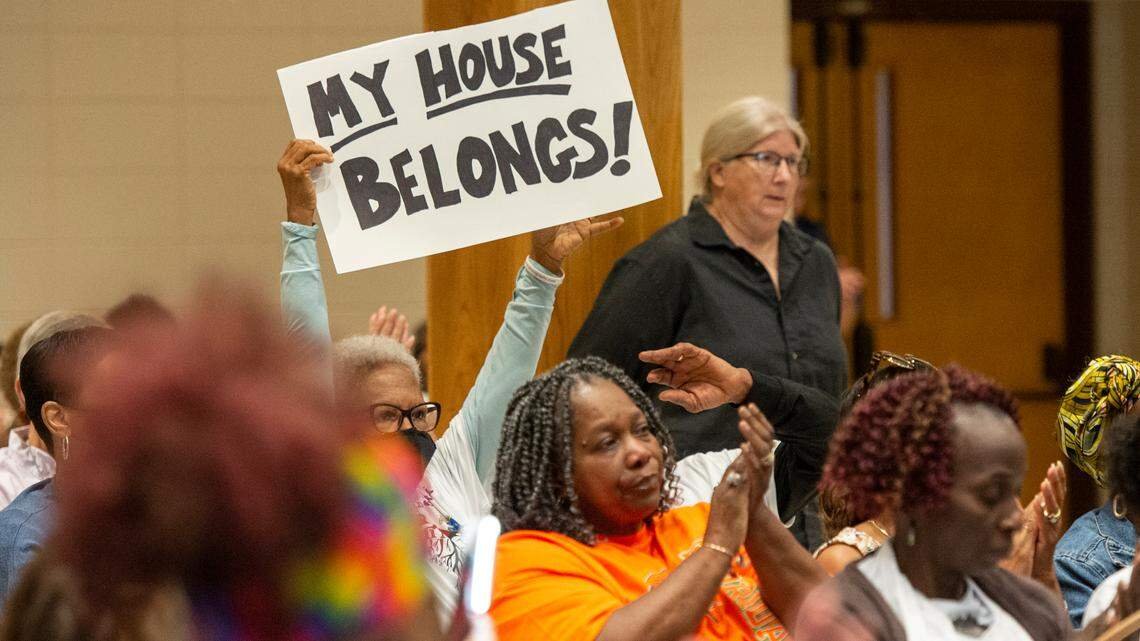Ocean Springs’ Urban Renewal Plan: Progress or Broken Trust?
In August 2023, the City of Ocean Springs, Mississippi unveiled what it called an “Urban Renewal Plan” (URP). The proposal designated more than 100 properties as “slum” or “blighted,” a move city leaders claimed would unlock federal grants and attract private development. Then-Mayor Kenny Holloway defended it as a forward-looking effort to modernize Ocean Springs.
But beneath the polished language of “revitalization” lay a painful reality: the homes at the center of the plan weren’t just lots on a map. They were long-standing family houses, historic structures, and community landmarks — many of which hardly fit the description of blight. For residents, the URP was less about opportunity and more about erasure.
A Controversy Born in Silence
What fueled outrage was not only the designation itself, but the way it was carried out. Mississippi law gives property owners just 10 days to contest a blight label. Yet many Ocean Springs residents only discovered their homes had been marked as “slum” or “blighted” after the deadline had passed.
The revelation didn’t come from a direct letter or meeting, but from a 171-page development plan quietly posted to the city’s Facebook page.
The backlash was immediate:
Perceptions of secrecy. Residents felt the process had been deliberately hidden, stripping them of their right to respond.
Generational displacement. Families with decades of history in Ocean Springs feared being uprooted by eminent domain.
Loss of trust. Neighbors questioned whether city leaders had acted in good faith.
Community leader Greg Gipson captured the sentiment bluntly:
“We were painted as if our homes and neighborhoods were nothing but problems to clear away… What happened to this community will not be forgotten any time soon.”
The Institute for Justice soon joined the fight, with Senior Vice President Dana Berliner reminding the public of a core constitutional principle:
“Telling a person about something when it’s too late to do anything is not the meaningful opportunity to be heard that the U.S. Constitution’s Due Process Clause requires.”
Legal and Political Fallout
The controversy spilled quickly into the courts and ballot box. In October 2023, residents filed suit challenging the URP. The city revised the plan in 2024, but litigation continued. Then, in February 2025, a federal judge dismissed the case, ruling that Mississippi law does not require direct notice to landowners.
For residents, the decision was a bitter reminder that legal loopholes can erode basic fairness.
The political consequences were equally sharp. Many Ocean Springs citizens believe the URP’s rollout — particularly its secrecy — helped cost Mayor Holloway his re-election in 2025.
Where Things Stand Now
As of September 2025, the URP is teetering on the edge of repeal. A public hearing scheduled for Tuesday, September 16 at 6 PM may close this chapter for good.
While some properties inside the URP boundaries may look run-down, appearances alone cannot justify denying residents their right to due process. The real issue isn’t curb appeal — it’s accountability and transparency.
The Larger Question: Can Government Be Trusted?
The Ocean Springs URP controversy is not just about zoning maps or federal grants. It asks a bigger question:
What responsibility do governments have to act with transparency and good faith when wielding power over people’s homes and livelihoods?
Even if city leaders operated within the letter of state law, their ethical duty to notify residents was unmistakable. Community renewal cannot be built on secrecy. Without trust, even the best-intentioned projects crumble under suspicion.
A Cautionary Tale for Cities Nationwide
The story of Ocean Springs should serve as a warning to municipalities everywhere:
Process matters as much as results. Development without transparency undermines the very communities it seeks to strengthen.
Legal compliance is the floor, not the ceiling. Cities must rise to a higher standard of ethical responsibility.
Trust is priceless. Once lost, it takes years — and often new leadership — to rebuild.
Conclusion
What began as a plan to “renew” Ocean Springs may instead be remembered as a symbol of broken trust and mismanaged governance. As residents prepare for the September 16 hearing, they face a defining moment.
Will Ocean Springs choose transparency, accountability, and community-centered leadership? Or will it leave behind a legacy of secrecy and exclusion?
The answer will not only shape the future of this Mississippi town but also send a message to cities across America about the true cost of progress without trust.
REFERENCES:
https://www.wxxv25.com/ocean-springs-unveils-development-in-the-urban-renewal-plan/


